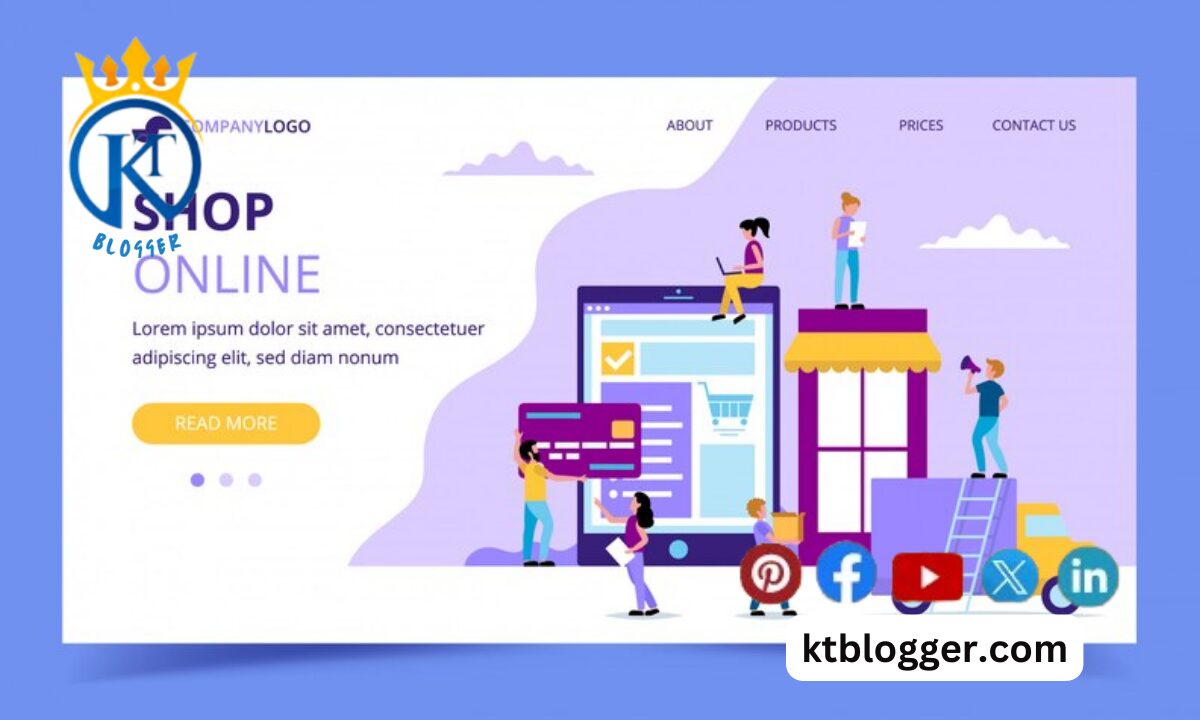Small businesses have an incredible chance to thrive in today’s digital age. Gone are the days of needing lots of money or a physical store to reach customers. With easy-to-use ecommerce website builders, anyone can build a website and sell their products or services online. But with so many options out there, picking the right one can be overwhelming.
This detailed guide is here to make things simpler. We’ll explore the best ecommerce website builder for small businesses in 2024.
The best ecommerce website builder for small businesses varies depending on specific needs and location. In the UK, options like Shopify and Wix offer robust solutions. In India, platforms like Zoho Commerce and BigCommerce cater to local requirements.
For those seeking free options, WooCommerce and SquareSpace provide comprehensive tools. Regardless of choice, prioritizing user-friendly interfaces and features for small business ecommerce ensures smooth management and growth.
By the end, you’ll have the knowledge you need to choose the perfect platform for your new online business.
Content
- 1 Key Considerations Before Choosing an Ecommerce Website Builder
- 2 8 Best Ecommerce Website Builder For Small Business
- 2.1 1. Shopify: The All-Around E-commerce Powerhouse
- 2.2 2. Wix: Drag-and-Drop Design Freedom for Creative Businesses
- 2.3 3. BigCommerce: Scalable Powerhouse for Enterprise-Level Businesses
- 2.4 4. Squarespace: Elegance and Ease for Service-Based Businesses and Creatives
- 2.5 5. GoDaddy: A Budget-Friendly Option for Local Businesses
- 2.6 6. Weebly: Simplicity Reigns Supreme for Beginners
- 2.7 7. Volusion: Feature-Rich for Growing Businesses
- 2.8 8. Zyro: The AI-Powered Up-and-Comer
- 3 FAQs
- 3.1 I’m completely new to Website Building. Which Platform is easiest to use?
- 3.2 I have a limited Budget. Are there any affordable Website Builders for Ecommerce?
- 3.3 I want my online store to have a Unique and Stylish Design. Which Builder offers the most Customization?
- 3.4 My Business is Growing rapidly. Do I need a platform that can scale with me?
- 3.5 How can I make sure my online store gets noticed by Potential Customers?
- 4 Final Verdict
Key Considerations Before Choosing an Ecommerce Website Builder
Before we dive into the contenders, it’s essential to understand some key factors to consider when choosing the best ecommerce website builder for small business:
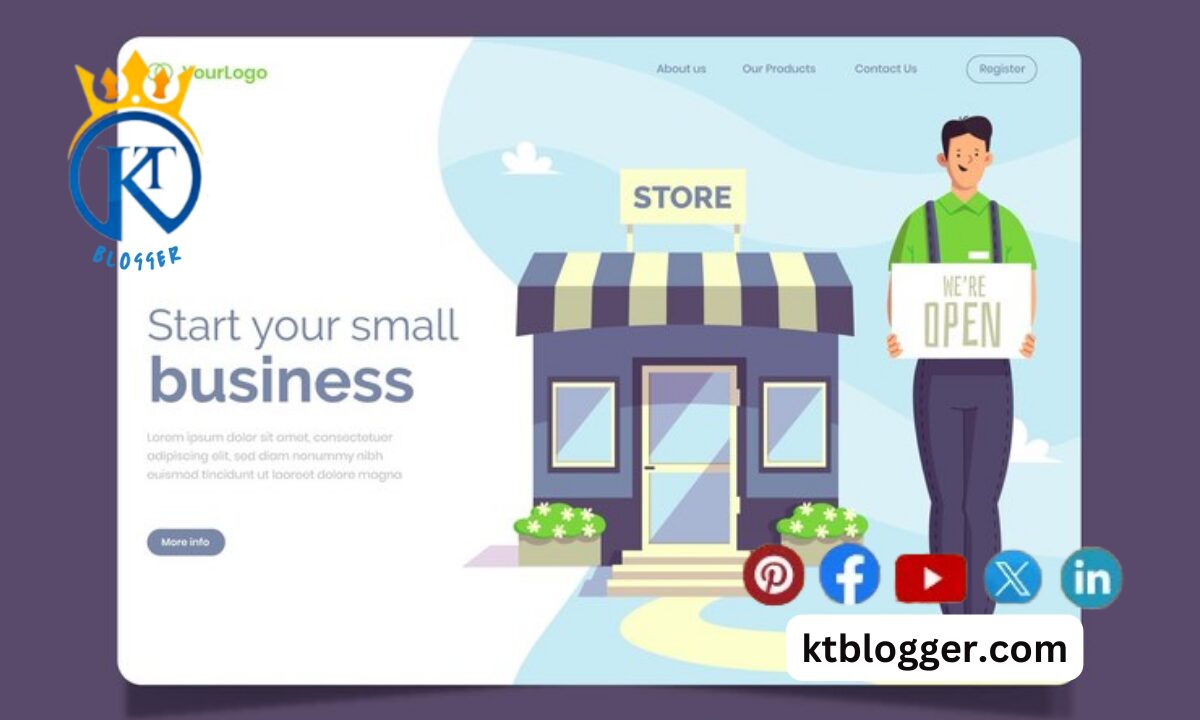
Ease of Use
Are you a tech whiz or a complete beginner? Choose a platform with a user-friendly interface and intuitive features, especially if you’re new to website building.
Customization
How much control do you desire over your online store’s design and functionality? Some builders offer a high degree of customization, while others prioritize pre-designed templates for a faster setup.
Scalability
Does your business have ambitious growth plans? Ensure the platform you choose can accommodate your future needs, whether it’s handling a larger inventory or integrating with advanced marketing tools.
Pricing
Website builders come with varying pricing structures. Consider your budget alongside the features offered by each platform.
Payment Processing
Seamless payment processing is vital for any online store. Make sure the builder integrates with your preferred payment gateways and offers secure transaction options.
Inventory Management
For businesses with a diverse product range, robust inventory management tools are essential. Choose a platform that allows you to track stock levels, manage product variants, and streamline order fulfillment.
Now, let’s explore the eight best ecommerce website builders for small businesses.
8 Best Ecommerce Website Builder For Small Business
The best ecommerce website builder for small businesses depends on your specific needs and budget. Shopify store for small businesses is popular for its user-friendly interface and robust features, while Wix ecommerce offers affordability and flexibility.
Squarespace ecommerce is known for its elegant design templates, and WooCommerce is favored for its integration with WordPress. Consider factors like mobile responsiveness, SEO friendliness, and inventory management when choosing the best platform.
- Shopify
- Wix
- BigCommerce
- Squarespace
- GoDaddy
- Weebly
- Volusion
- Zyro
1. Shopify: The All-Around E-commerce Powerhouse
Shopify stands as the reigning champion in the world of ecommerce website builders. Renowned for its user-friendly interface, vast app store, and robust built-in features, the create Shopify store is the go-to choice for many entrepreneurs.
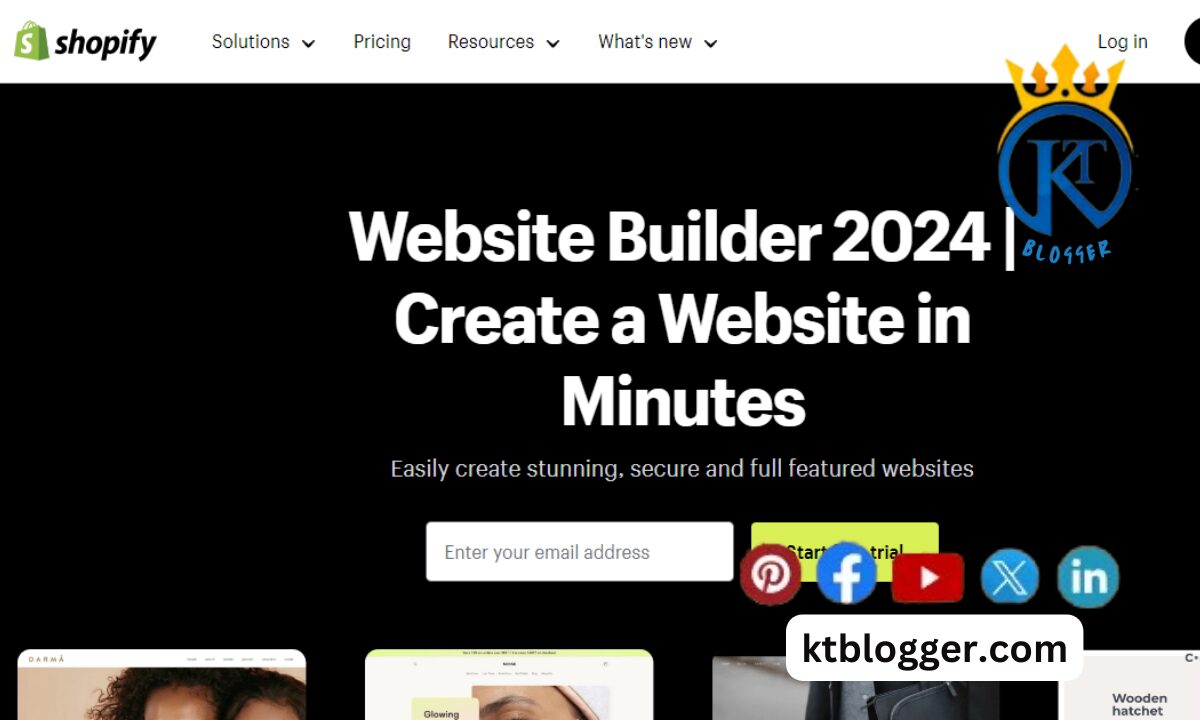
Strengths: Easy to use, extensive app store, secure payment processing, excellent inventory management, mobile-friendly themes, strong SEO capabilities.
Weaknesses: Limited free plan, higher pricing compared to some competitors, customization options may feel restrictive for design-savvy users.
Pricing: Starts at $29/month for basic features, with higher tiers offering additional functionalities.
Ideal for: Businesses selling a wide variety of physical products, those with growth aspirations, and individuals seeking a comprehensive ecommerce solution.
2. Wix: Drag-and-Drop Design Freedom for Creative Businesses
Wix stands out for its drag-and-drop interface, offering unparalleled design flexibility. With its user-friendly interface, Wix empowers users to create visually stunning online stores that reflect their brand identity.
Strengths: Highly customizable design, user-friendly interface, extensive app market, built-in marketing tools, and free plan available for basic needs.
Weaknesses: Limited app functionality compared to Shopify, less robust SEO capabilities, and downgrades can occur on free plans.
Pricing: Free plan with limited features, paid plans start at $13/month for basic ecommerce functionality.
Ideal for: Businesses prioritizing visually appealing online stores, creative entrepreneurs with a strong brand vision, and those comfortable with a drag-and-drop interface.
3. BigCommerce: Scalable Powerhouse for Enterprise-Level Businesses
BigCommerce caters to businesses with ambitious growth plans. With its focus on scalability and robust features, BigCommerce is ideal for those envisioning their small business evolving into a full-fledged online empire.
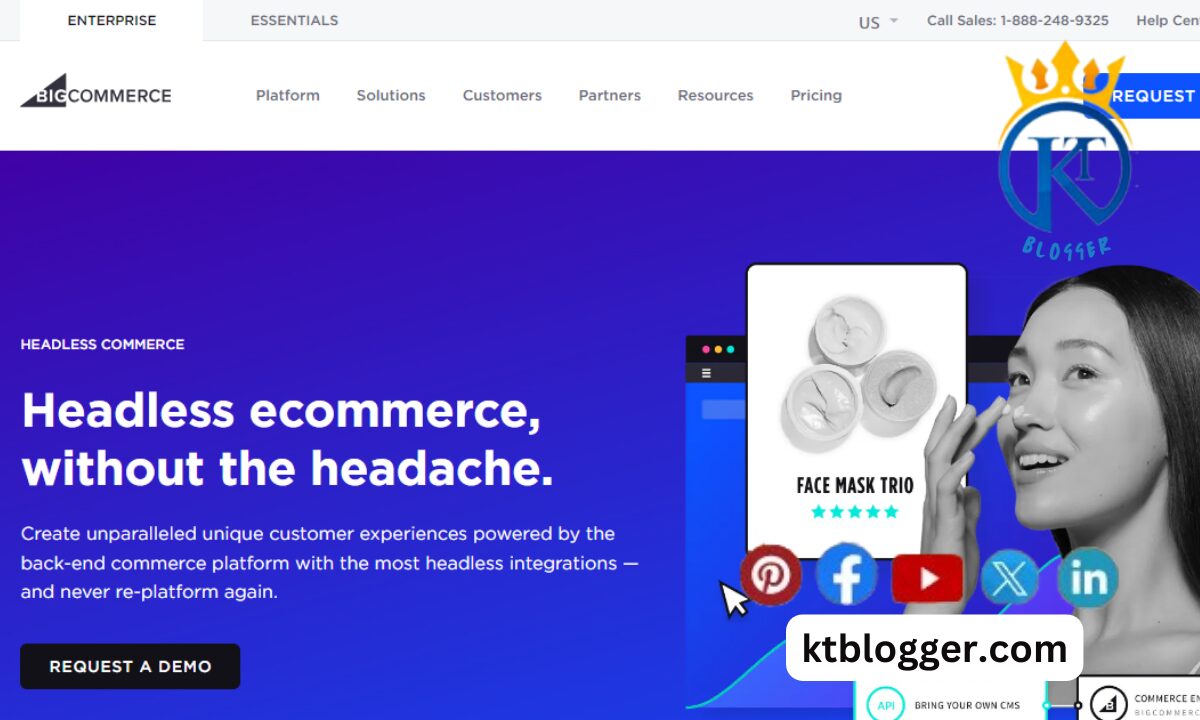
Strengths: Highly scalable, advanced features for high-volume businesses, built-in SEO tools, excellent product filtering and navigation options, and strong built-in analytics.
Weaknesses: Higher learning curve compared to some competitors, pricing may be costlier for smaller businesses.
Pricing: Starts at $29.95/month for basic features, with higher tiers offering increased functionality.
Ideal for: Businesses with a vast inventory and growth aspirations, those requiring advanced ecommerce features.
4. Squarespace: Elegance and Ease for Service-Based Businesses and Creatives
Squarespace is renowned for its stunning templates and focus on user experience. With its beautiful designs and user-friendly interface, Squarespace is an excellent choice for service-based businesses and creatives seeking a polished online presence.
Strengths: Beautiful design templates, user-friendly interface, excellent blogging platform integration, built-in appointment scheduling (ideal for service-based businesses), and strong marketing tools.
Weaknesses: Limited customization options compared to Wix, fewer ecommerce-specific features than Shopify or BigCommerce, may not be ideal for businesses with a large variety of physical products.
Pricing: Starts at $16/month for basic features, with higher tiers offering ecommerce Business functionality.
Ideal for: Service-based businesses (e.g., consultants, photographers), creatives showcasing their work (e.g., artists, designers), and those prioritizing a beautiful and user-friendly online store.
5. GoDaddy: A Budget-Friendly Option for Local Businesses
GoDaddy offers a budget-friendly solution for local businesses entering the ecommerce space. While it may not have all the bells and whistles of its competitors, GoDaddy provides a straightforward and affordable option.
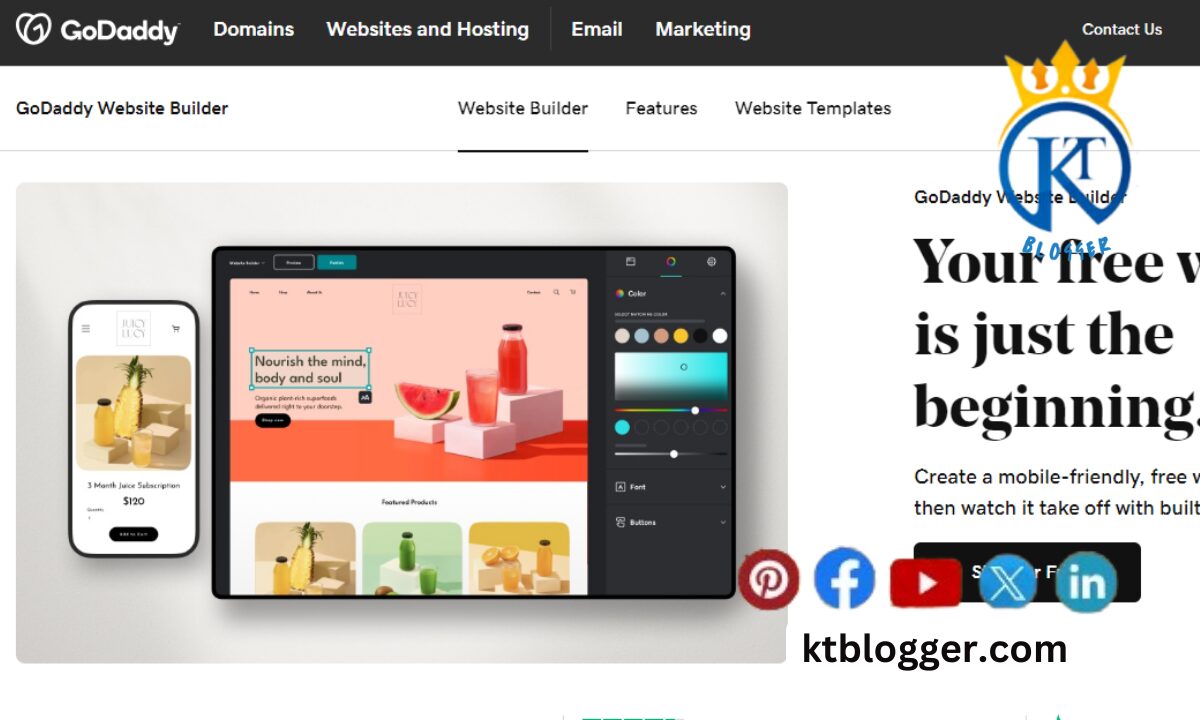
Strengths: Very affordable pricing, easy to use, strong integration with other GoDaddy services (e.g., domain registration, email), built-in marketing tools.
Weaknesses: Limited design flexibility, and fewer features compared to other builders, may not be ideal for businesses with a complex product range.
Pricing: Starts at $10.99/month for basic ecommerce functionality.
Ideal for: Local businesses seeking a simple and affordable online store, those with a small product range, businesses already using other GoDaddy services.
6. Weebly: Simplicity Reigns Supreme for Beginners
Weebly is a user-friendly website builder that offers an ecommerce plan. With its straightforward interface and drag-and-drop functionality, Weebly is a solid option for beginners.
Strengths: Super easy to use, drag-and-drop interface, affordable pricing, integrates with popular payment gateways.
Weaknesses: Limited design options, and fewer features compared to other builders, may not be ideal for businesses with growth aspirations.
Pricing: Starts at $12/month for basic ecommerce functionality.
Ideal for: Complete beginners with no prior website building experience, businesses with a small product range, and those seeking a simple and affordable online store.
7. Volusion: Feature-Rich for Growing Businesses
Volusion caters to growing businesses with its robust feature set, including built-in customer relationship management (CRM) tools and social media marketing integrations.
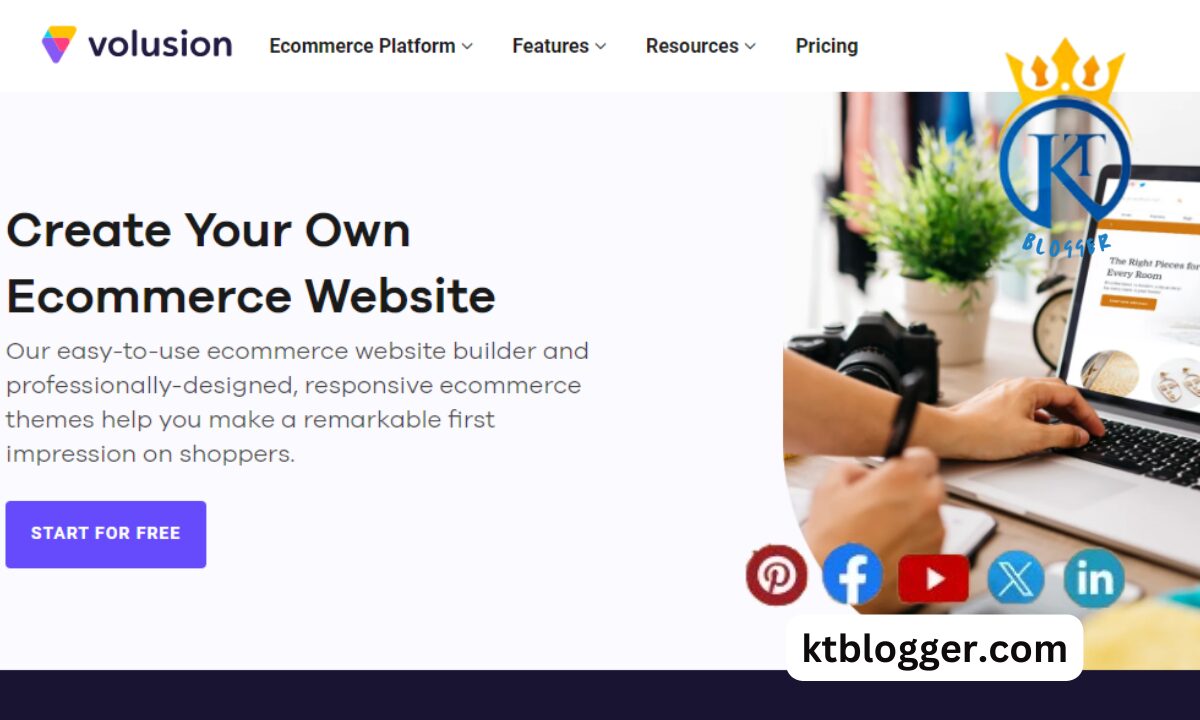
Strengths: Extensive features for growing businesses, built-in CRM tools, social media marketing integrations, and strong inventory management.
Weaknesses: Steeper learning curve compared to some competitors, pricing can be costlier for smaller businesses.
Pricing: Starts at $35/month for basic features, with higher tiers offering increased functionality and bandwidth.
Ideal for: Businesses with a growing product range, those seeking built-in CRM and marketing tools, and businesses comfortable with a slightly more complex platform.
8. Zyro: The AI-Powered Up-and-Comer
Zyro is a relatively new player in the ecommerce website builder arena, leveraging AI-powered features to streamline the website creation process.
Strengths: AI-powered website creation tools, user-friendly interface, affordable pricing, mobile-responsive themes.
Weaknesses: Limited app integrations compared to established competitors, a somewhat new platform with less established features.
Pricing: Starts at $8.90/month for basic features, with higher tiers offering increased functionality and storage.
Ideal for: Tech-savvy entrepreneurs comfortable with AI-powered tools, businesses with a small product range, and those seeking an affordable and user-friendly platform.
FAQs
I’m completely new to Website Building. Which Platform is easiest to use?
If you’re a beginner, website builders like Wix, Weebly, and Zyro are excellent options. They all boast user-friendly interfaces with drag-and-drop functionality, making it easy to create your online store without any prior coding experience.
I have a limited Budget. Are there any affordable Website Builders for Ecommerce?
Absolutely! Several website builders cater to budget-conscious businesses. GoDaddy, Weebly, and Zyro all offer affordable plans with basic ecommerce functionality. Keep in mind that features and functionality may increase as you move up to higher pricing tiers.
I want my online store to have a Unique and Stylish Design. Which Builder offers the most Customization?
For design-focused businesses, Wix and Squarespace are strong contenders. These platforms offer a high degree of customization through their design templates and features, allowing you to create an online store that reflects your unique brand identity.
My Business is Growing rapidly. Do I need a platform that can scale with me?
If you anticipate significant growth, consider website builders like BigCommerce or Volusion. These platforms are designed to handle large product inventories, and high traffic volumes, and offer features to support your business’s expansion.
How can I make sure my online store gets noticed by Potential Customers?
Search Engine Optimization (SEO) is crucial for ecommerce success. Look for website builders that offer built-in SEO tools or integrate with SEO plugins to improve your online store’s ranking in search results. Additionally, leverage social media marketing to promote your products and reach new audiences.
Final Verdict
Picking the best ecommerce website builder for small businesses depends on what you need and like. If you want to sell services, Squarespace is a good option. But, Shopify is our top choice for ecommerce website builders. It’s better than others because it has really good features for making sales.

